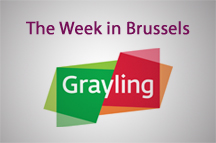 The EU election results can be read in two ways.
The EU election results can be read in two ways.
First, the status quo continues, with the European People’s Party (EPP) expected to be the largest political group with 214 seats, followed by the Socialists & Democrats (S&D) on 191 and the Liberals trailing in third place with 64 seats.
Together with the Greens with 52 seats, this ensures the European Parliament has what could loosely be considered a pro-European majority, and this alone should ensure that policy-making during the next mandate will be largely unchanged, in the sense that laws will get passed, motions will be tabled, and the legislative agenda rumbles along.
That is one way of looking at it. Here is the second.

Undoubtedly this has been an election for the parties representing the Far Right, the Far Left, and the Eurosceptic bloc. In France the National Front became the largest party in the European Parliament, an honour shared by the UK Independence Party (UKIP) in the UK and the Far Left Syriza in Greece.
However, it is not clear whether these parties will be able to work together – UKIP has already stated that it cannot form a political group with the National Front, and historically parties on the political extremes have failed to form a cohesive unit. With a party group needing to be composed of at least 25 MEPs from at least seven Member States, a critical few weeks awaits.
Moreover, it should be remembered that MEPs from these parties do not tend to draft legislative reports or play a meaningful role in the political process, meaning that their legislative impact will be limited, even if they continue to display their national flags and make a populist speeches in the Parliament which are posted on YouTube…
The scramble to be Kingmaker
For all that EPP remains the largest bloc, it lost 51 seats, whilst the Liberals lost 20 seats, and the beneficiaries were undoubtedly MEPs which are not aligned with any existing political group.
As many as 72 MEPs have yet to declare which party to stand for, leading to uncertainty over which of the smaller groups could be considered “kingmakers” in the new Parliament.
At the current time it looks like most laws will have to get passed through a “grand coalition” made up of the S&D and EPP, which could create problems on certain dossiers, not least those of an economic and financial nature.
A new Commission President in the wings
And what of the Commission? The EPP’s victory means that Jean-Claude Juncker, the party’s candidate for Commission President, should theoretically be the Parliament’s first choice. Yet, not only will he likely be black-balled by the Council, there seems to be a likelihood that he will not get the necessary majority in the Parliament. The same scenario confronts the S&D candidate, Martin Schulz and the Liberal candidate Guy Verhofstadt.
Step forward then Danish Prime Minister Helle Thorning-Schmidt. As a Social Democrat she would win the hearts of her party group, as a Scandinavian of a non-Euro country she could win over some of the European Conservatives and Democrats group, as well as the Greens and the far left GUE/NGL – all of which would give her a Parliamentary majority. The fact she is an alumnus of the College of Europe no doubt stands her in good stead too.
Time for talk is over
It is customary for politicians from the centre to claim they have “learnt the lessons” from such results and to acknowledge the strength of anti-EU and a broader anti-establishment feeling.
Yet they said the same thing five years ago, and five years later there are more – many more – MEPs from the extremes of the political spectrum sitting in Strasbourg and Brussels.
Indeed, at 43% turnout was up for the first time ever in EU Elections, yet this seems to have played into the hands of parties who want to destroy the entire political dimension of the European Union.
For those bent on repelling the anti-EU forces, the time for talk is over. There needs to be real engagement from the centre parties towards the Eurosceptics, and fundamental questions have to be asked about how the EU can win back the hearts and minds it has lost, not just over the last five years, but over recent decades.
These elections represent a challenge to the political class – they must meet it head on, or risk becoming politically irrelevant.












